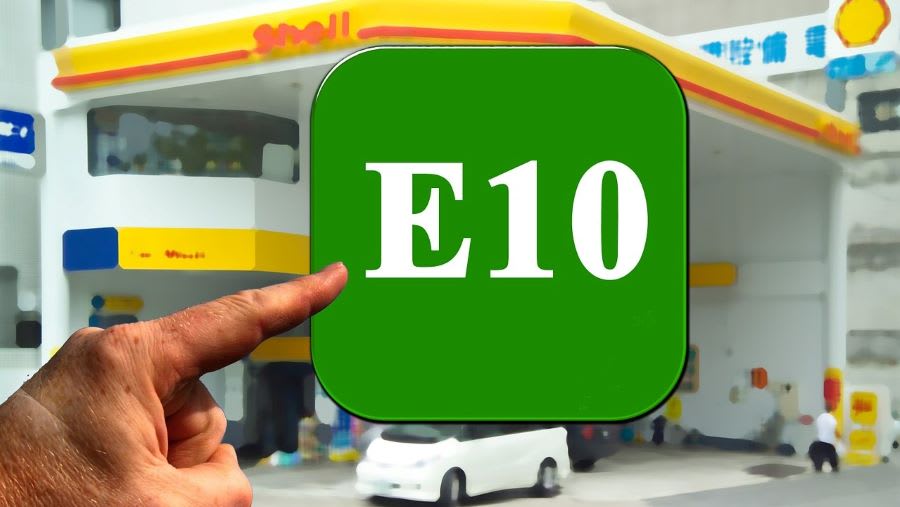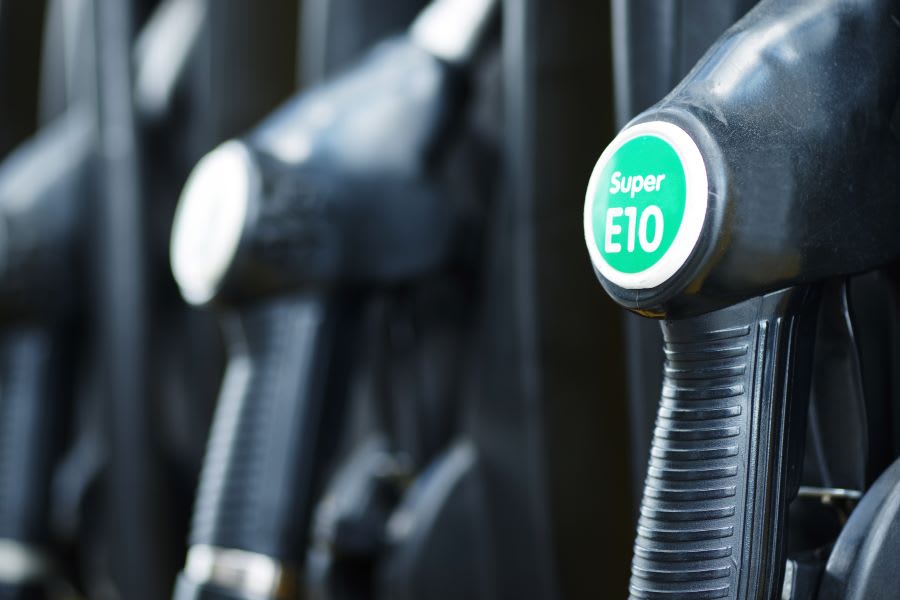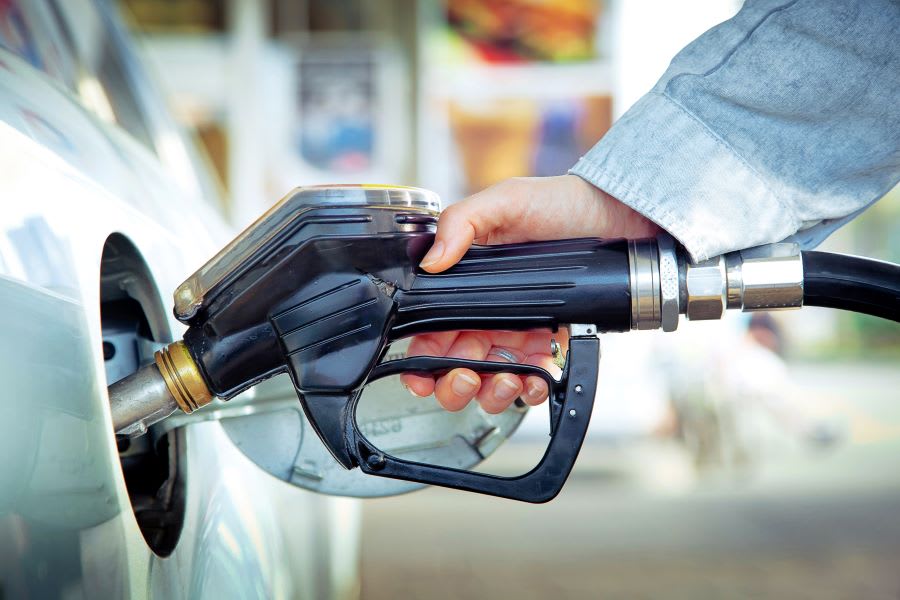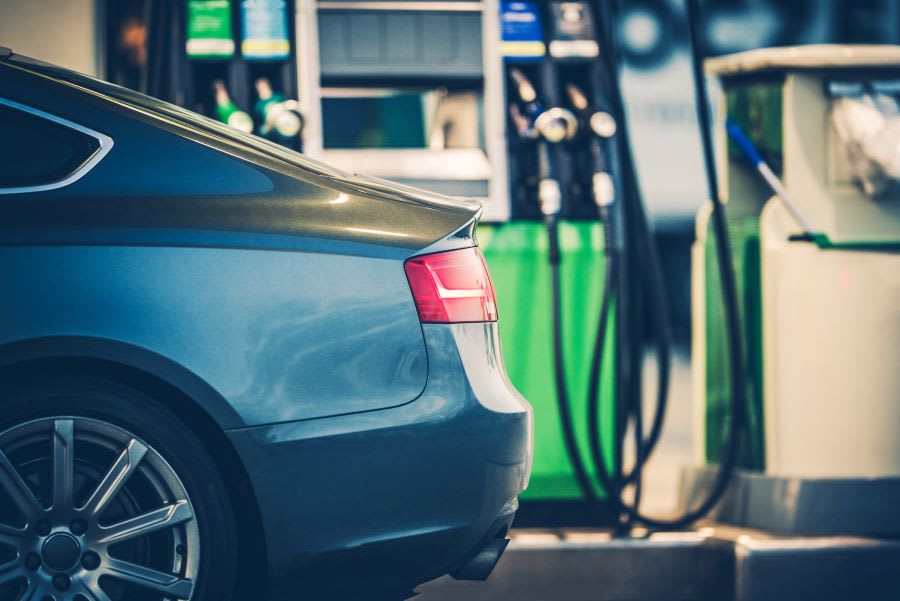In September 2021, forecourts around the UK introduced a new type of petrol, called E10. It’s a different formulation of petrol, designed to be cleaner and better for the environment.
For most UK motorists, the change won’t make much difference to their lives, but for some, it’s a move they need to know about. In this article, we’ll explain what E10 petrol is, its pros and cons, and whether you need to make any changes to your day-to-day motoring.

What is E10 petrol?
E10 is the latest formulation of standard petrol available at virtually every fuel station in the UK. For years now, both petrol and diesel have been sold with a blend of regular unleaded fuel and bioethanol – an alcohol-based fuel made by fermenting crops, such as sugarcane and grains.
As it doesn’t rely on fossil fuels, bioethanol is renewable and better for the environment; as the plants used for bioethanol grow, they absorb more carbon dioxide than will be released than during the production and burning of fuel.
Until September 2021, the regular grade petrol sold in the UK was classified as E5, indicating that it had 5% bioethanol in it. E10, as you may have guessed, ups that percentage to 10%, and the government has mandated that it must make up the regular grade petrol sold at all fuel stations from now on.

The UK isn’t the first to do this; E10 has been rolled out in other European countries for some time. The move over here is part of the Renewable Transport Fuel Obligation, a strategy from the Department for Transport that aims to make sure 9.75% of all fuel for transport comes from renewable sources by 2021.
The Government says the move from E5 to E10 will save around 750,000 tonnes of carbon dioxide each year, which equates to a 2% drop in emissions. As far as exhaust pollutants go, it’s as if 350,000 cars have been removed from the roads.
Will my car work with E10 petrol?
If you have a petrol-powered car made in the past 10 years, then yes, it will; all new cars sold across Europe have been E10 compatible since 2011. If you want to be absolutely sure, then you can use the Government’s fuel-checker website.
Assuming I have a compatible car, what are the downsides of E10 petrol?
Not many, although you may find that you get a slightly lower fuel economy than before, as raising the ethanol level can decrease efficiency overall. The difference is tiny though, and most people won’t even notice it. Any price changes between E5 and E10 should also be very small.

Will my lease car work with E10 in the UK?
Good news. With virtually every lease car you can get from Select today you are worry free when it comes to E10 petrol. All UK car lease deals supplied by us are brand new cars, so these cope with E10 petrol absolutely fine.
However, should you have any questions at all about any particular model of vehicle regarding E10 fuel then speak to one of our leasing consultants and they will guide you through this. Simply browse our special offers page, have a look whether a particular car lease deal suits your needs and then chat further with our expert team at Select.
What if I have an older car?
Well, then it might be a bit more complicated. According to the RAC Foundation, there are some 600,000 petrol-powered cars on UK roads that aren’t designed for E10 fuel. The problem is that bioethanol acts as a solvent, and repeated use of E10 can cause issues in cars that haven’t been designed to deal with it.
Possible problems could include fuel system trouble caused by dislodged deposits, and damage to seals, plastics, gaskets and even metalwork. E10 is also hygroscopic, which means it absorbs water from the air; this can cause condensation in the fuel tank if you don’t drive your car regularly.
Those who face the most problems are drivers of classic cars, made in the 1990s or before. A handful of early 2000s cars could have issues too. The general advice is that drivers of cars made before 2002 should avoid E10.
The RAC Foundation estimated that some 28,000 Volkswagen Golfs should not run on E10, nor should nearly 21,000 MG Bs, 18,000 Mazda MX-5s, 15,000 Nissan Micras and 12,700 Morris Minors.

What do I do if my car is incompatible?
The good news is that E5 fuel is still available at a lot of pumps. The bad news is that it’s premium fuel, which will be more expensive than the regular fuel you may have used before. You’ll be able to see on the pump labelling whether the fuel you’re using is E5 or E10.
On the plus side, premium-grade fuels are usually better for performance and fuel economy than regular fuels; that’s why it’s often favoured by those who have performance cars.
I’ve accidentally put E10 fuel in a car that’s not compatible. What should I do?
Don’t panic; this isn’t like putting diesel in a petrol car. If you put E10 fuel into a car that should only have E5, the chances of instant problems or long-lasting damage are very small. You won’t need to call a mechanic, or drain the fuel tank, and it should be fine to drive the car.
However, as soon as you’re able, top up the fuel tank with E5. This will dilute the amount of ethanol in the car’s system and reduce the risk of any future problems.
Enjoyed this? Read our latest news:
- Polestar 2 EV enjoys new update
-
Vauxhall confirms first ever electric Astra-e
- New 2022 Mazda CX-5 SUV revealed
- Best UK Car Lease Deals | In Stock for September 2021
- Everything you need to know about the Mitsubishi Eclipse Cross
Where To Next?
For all the latest reviews, advice and new car deals, sign up to our newsletter.
Looking for a great leasing deal? Check out our incredible range of car lease deals.
Read our latest reviews and find the right model for you.
Want to know more about leasing? Take a look at our comprehensive leasing guides.
Interested in everything motoring? Why not catch up on all the latest car leasing news.















